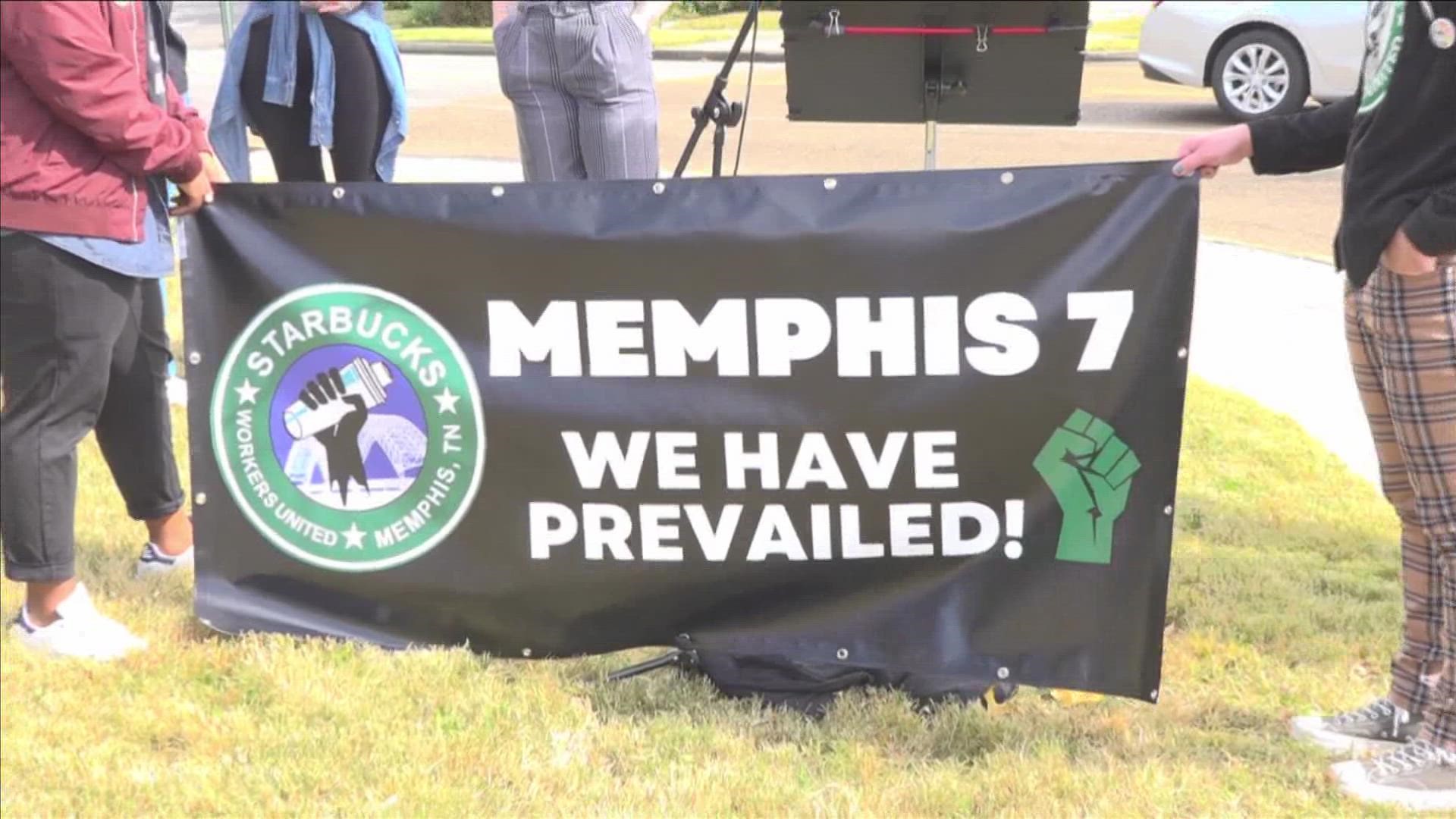On Saturday, people gathered at the Poplar Starbucks to celebrate the reinstatement of "The Memphis Seven."
In a decision issued in August, U.S. District Judge Sheryl Lipman agreed with the National Labor Relations Board (NLRB), which had asked the court to intervene in May. The labor board said Starbucks violated U.S. labor law by interfering in workers' right to organize.
Now, Starbucks has rehired them. Many participants are hoping this success will encourage others to unionize and use their voices too.
Justin J. Pearson is the co-chair of Mid-South Mobilization and co-founder of Memphis Community Against Pollution.
"Unions are how we build power in this country for workers," Pearson said. "Workers are the bedrock of our society, and unions are the bedrock of making sure that our capitalistic system doesn't exploit people."
Pearson said he believes unions give workers power and opportunities to get what they need to live when their jobs don't consider how these workers feel.
The case as a whole had been among the most closely watched in the unionization effort at Starbucks. Since late last year, more than 220 U.S. Starbucks stores — including the Memphis store — have voted to unionize.
Starbucks originally opposed the unionization effort. The company first attempted to fire the seven employees in early February, citing safety. The Seattle coffee giant said the employees violated company policy by reopening a store after closing time and inviting non-employees — including a television crew — to come inside and move throughout the store.
“These individuals violated numerous policies and failed to maintain a secure work environment and safety standards,” the company said in a statement Thursday. “Interest in a union does not exempt partners from following policies that are in place to protect partners, our customers and the communities we serve.”
Still, the NLRB and the fired workers told the court that Starbucks had routinely tolerated off-duty employees and non-employees remaining in the store after hours to make drinks, collect belongings or assist each other.
“Such tolerance before union activity, but terminations resulting thereafter, supports an inference of discriminatory motive," the judge wrote.
The NLRB had begun administrative proceedings against Starbucks, saying the company was unlawfully interfering in workers’ right to organize. Still, those proceedings can take so long that the NLRB asked the federal court for an immediate injunction requiring Starbucks to reinstate the workers.

